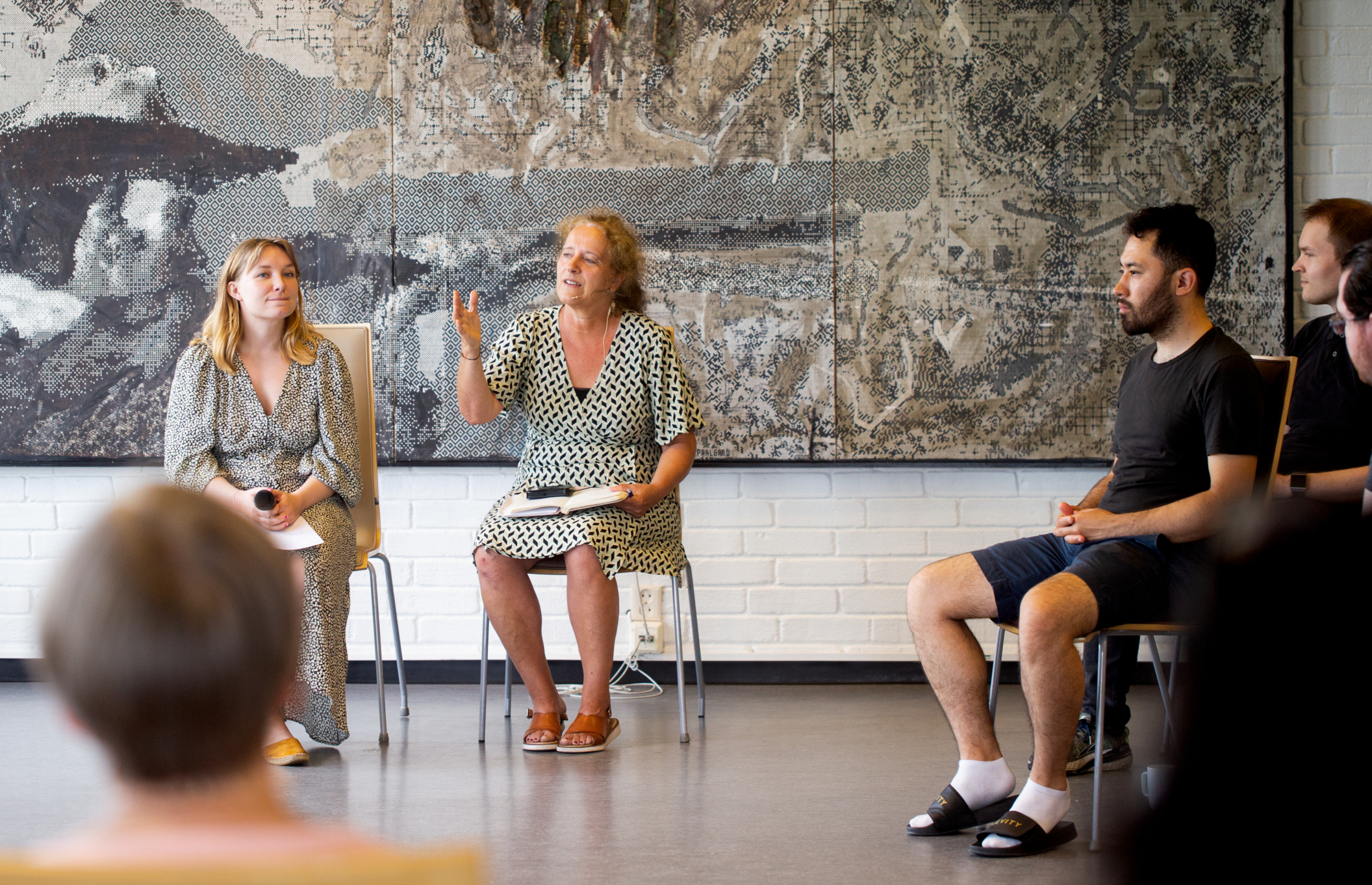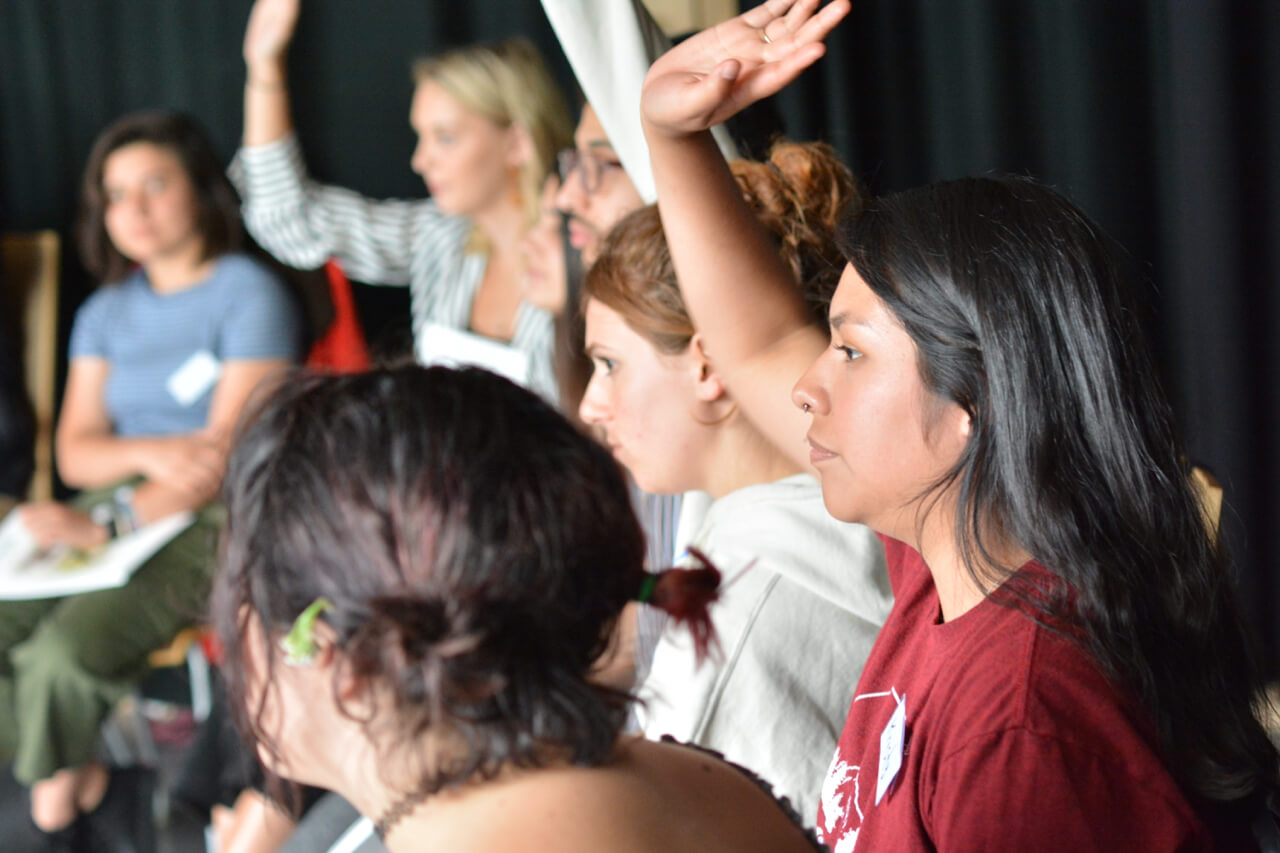Dialogue Facilitation
If you want to learn how to facilitate a dialogue – in the workplace, in everyday situations, through voluntary involvement – then this training course is for you!

Facilitation is about creating a safe atmosphere so that the participants in a dialogue can talk to each other in an honest, open and empathetic manner. Dialogue is not a discussion, a panel conversation or a lecture. It is a process-based conversation based on active listening and good questions, where important elements are inclusion, respect, joint ownership and humanity.
Using this framework, the facilitator’s role is to create a safe space where the participants feel respected, listened to and valued – they take part in a conversation where their voices matter.
Participation in this course generally requires previous participation in the introductory course Dialogue in Conflict or Public Dialogue. Participation in a similar course or extensive experience with dialogue work can compensate for this requirement.
Read more about our dialogue approach.
Course Content
This course consists of a number of topics and tools required to facilitate a dialogue. This is a five-day process-oriented course that addresses various aspects of the facilitator’s role. During this course you will have the opportunity to practice this role through role play, and to reflect on the many challenges a facilitator may face.
MAIN COMPONENTS
Review: What Is a Dialogue?
We review various ways of understanding dialogue, as well as the most important elements in our approach: Using exercises for active listening and dialogical questions.
Reflection Activity
What is dialogue facilitation, and how does this approach differ from mediation, moderation and debate management?
Introduction to the Role of the Facilitator
What is the role of the facilitator? Which personal qualities and abilities must a facilitator have? We discuss essential tools in a facilitator’s dialogic toolbox.
Exercise: Dialogue Facilitation
The participants will practice dialogue facilitation in situations with different challenges using role play based on different themes and conflict situations. Then, they will receive feedback from both the course leaders and the other participants. This will help each individual to better understand their role.
Challenges Related to Facilitation
Participants will reflect on challenges related to the facilitator’s role, including the power balance, emotional outbursts, and elements that can hinder a good dialogue. The course also focuses on how to behave in an unbiased manner, and on how to be an authority without being authoritarian.
Planning a Dialogue Process
Facilitation is also about planning a long-term process. Participants will learn about various steps in this process, as well as techniques that can keep people motivated over time. We also take a closer look at conflict as a transformative process and how to plan and carry out a public dialogue.
Dialogue as a Tool for Reconciliation
Reconciliation is a long term process in which one seeks both truth and justice. In this part of the course, participants will experience how dialogue can be applied in a reconciliation process.
PRACTICAL INFORMATION
DURATION: Monday to Friday (arrival on Sunday)
LOCATION: Hotel in Lillehammer or at the Nansen Academy
COURSE FEE: EUR 1.400 (including guidance after the training)
MAXIMUM NUMBER OF PARTICIPANTS: 25
* This training does not provide any formal certification, but you will receive a document showing proof of completion from the NCPD.

UPCOMING TRAINING: December 1-5th 2025
Apply now for our upcoming training in Dialogue Facilitation, in December 2025.


